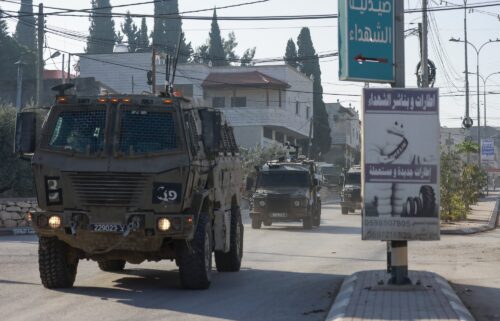There are moms worse than you — in the animal kingdom
By Kristen Rogers, CNN
If you’re a mother, you have probably experienced the mental “what if” game on repeat since you found out you were becoming a parent.
What if my kid never learns to read? What if they like another parent better? What if their food isn’t organic, or I pick the wrong preschool?
Worrying that you’re going to fail is normal, and you will make mistakes — but when put into perspective, know there are moms way worse than you, wrote comedy writer Glenn Boozan in her new book “There Are Moms Way Worse Than You: Irrefutable Proof That You Are Indeed a Fantastic Parent.” It was illustrated by Priscilla Witte.
Those questionable mothers include Dracula ants that suck their offspring’s blood, Boozan wrote, and sexton beetles, which lay their eggs on or beside a decomposing mouse and raise the youngsters by feeding them from the corpse.
The inspiration for Boozan’s book came from her shock in learning of her sister’s fear and guilt about being a bad mom — since her sister’s “the best mom in the world,” she said. “Her kids are perfect angels, and I’m obsessed with them.”
As a comedy writer, Boozan said, “Obviously dumb things come out of my mouth all the time. Instead of some inspiring, beautiful, Instagrammable quote, I responded to her with, ‘Well, I don’t know. Hamster moms eat their babies. So at least you’re not doing that.’ And it made her laugh. And she felt better.”
Boozan hopes her book helps alleviate your fears that can be exacerbated by social media, television, advertising and helicopter family members, even “if only for a moment with a little bit of laughter.”
The book is about a 20-minute read you can devour while your kid is refusing to nap in the crib or quietly wiping boogers on the wall.
Here’s the scoop on three other “bad” moms that might make you feel better this Mother’s Day.
Pandas
“Panda moms are perfect, until they’re blessed with two. Twins are hard, so they’ll ditch one — it’s terrible. And true!”
If a panda has twins, she abandons the weaker of the two since she only has the energy and resources to care for one, according to a 2016 study. Mothering pandas is a demanding job, as newborn pandas can’t see, hear, crawl, regulate their body temperatures or expel waste on their own. They need to be cradled for warmth and have their stomachs rubbed to prompt the muscles that help release waste.
Being able to raise two newborn pandas is rare. “I found out that even in a zoo with completely ideal, controlled environments, usually one of the panda twins won’t survive,” Boozan said.
Koalas
“For dinnertime, a koala mom will feed her kids her poop. Remember that when you feel bad for giving yours fast food.”
The eating of feces or dung is known as coprophagia, which “helps animals acquire the necessary gut microbiome to digest a complex and more varied diet,” according to a 2020 review. For koalas, this practice can help them adjust to new habitats with different species of eucalyptus plants, which are their main food source.
Quokkas
“If a quokka mom comes face to face with dingoes in the wild, guess what she’ll do to get away? That’s right — she’ll toss her child,” Boozan wrote.
The quokka — a type of small wallaby — doesn’t actually hurl its baby toward a predator. But when threatened, this furry marsupial will create a diversion by expelling offspring from its pouch by relaxing the muscles, allowing its charge to fall to the ground. “The joey serves as a yummy distraction for the predator while the mom runs to safety, hopefully to breed again,” Boozan wrote.
Quokkas’ life expectancy is about 10 years, and female quokkas can produce 17 offspring over a lifetime, with two joeys born each year, according to the Australian Museum.
Your best is good enough
Reading about these “horrific animal moms,” you might think, “Wow, how could they do something like this?” Boozan said.
But the ethos of “There Are Moms Worse Than You” ties human and animals together in their motherhood feats: Even animal moms’ seemingly dubious parenting practices are survival strategies designed to help themselves or their offspring succeed. And sometimes societies just don’t foster environments ideal for child-rearing.
“The best reaction I’ve gotten from people has been when they tell me the book allowed them to take a deep breath for a minute, and they laughed and caught themselves and thought, ‘OK, maybe at least for today, at least for the next 15 minutes, I don’t have to be so hard on myself,” Boozan said. “If I can make one mom feel that way, the book has been a success.”
The-CNN-Wire
™ & © 2022 Cable News Network, Inc., a WarnerMedia Company. All rights reserved.

